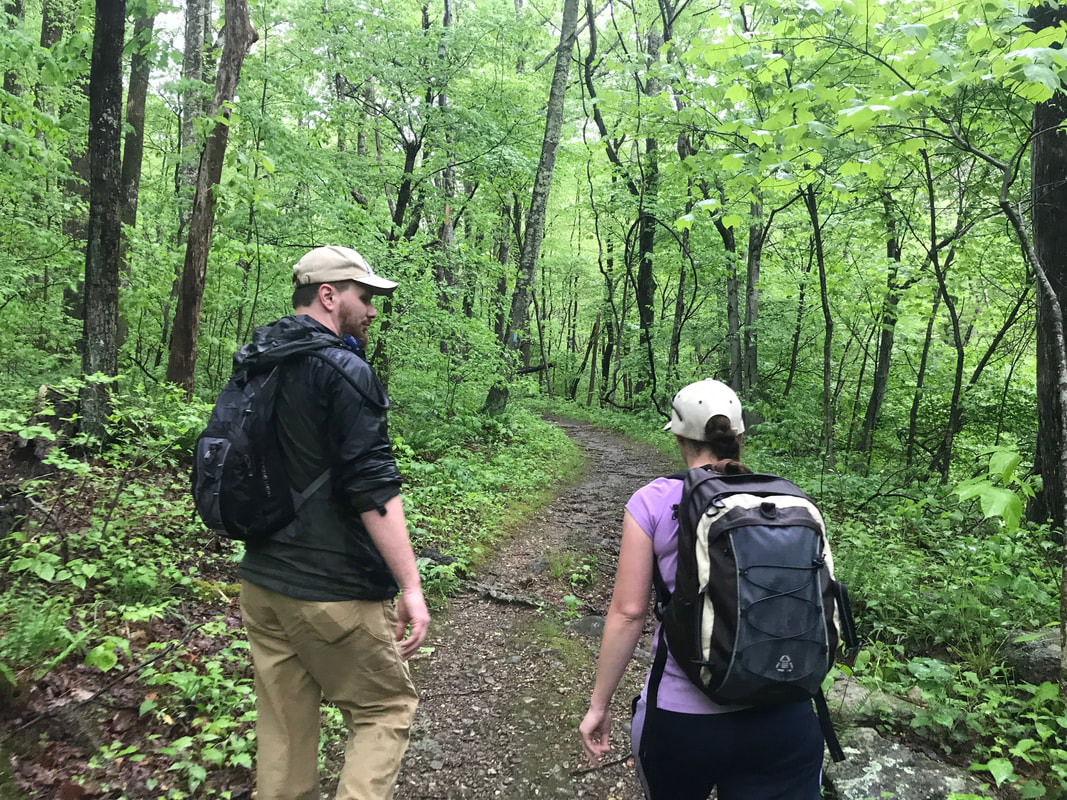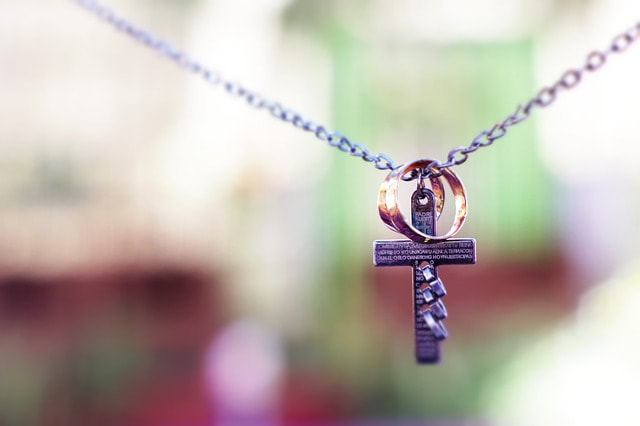|
This post is meant to be a follow-up to: "My Response to the Purity Culture and Josh Harris." First, I delayed publishing this follow-up because I wanted Paul to look over the post before it went live (my guard against errors in both memory and Biblical matters!). Secondly, please note that this is a super condensed skimming of very large matters. Paul said that it could easily be two or three blog posts, but, honestly, we could write a whole book on the subject! (And many people have.) For the sake of brevity, I chose to keep it all to one post. However, given the brief treatment, if you want to dig deeper into anything I say here or have questions, Paul and I would love to answer them together in a future post. Drop me a comment! Both my husband and I were raised in the courtship culture, but when we met and developed a relationship with one another, we neither dated casually nor fulfilled all the courtship requirements. In the courtship culture, I felt like friendships with guys were tense and awkward. I'm naturally very outgoing and friendly, but sometimes people interpreted that as flirtatious. I prefer more meaningful discussions over small talk, and sometimes that was interpreted as getting "too intimate" with a guy friend. So I became very confused and frustrated about how to be friends with men without being too "emotionally involved" (because I had to protect my emotional purity) or looking too interested (the guy must always initiate). I had no idea how to get to know a guy just as a friend, never mind get close enough (but not too close) to eventually become something more. Paul and I met at a time when I had decided, doggonit, I was going to be friends with guys and girls alike and not worry about how it looked to everyone else. I still never went anywhere exclusively with a guy, but I wasn't afraid to get to know them or send them emails. So when Paul came into my life, I felt I had the freedom to be friends with him. Of course, when he asked casually if I'd grab a coffee with him sometime, I privately panicked and told him no. Even so, I ended up attending the post-college, single professionals church caregroup that he led, and, in the course of various group meetings and activities, we realized that we had a lot in common. Not only did we enjoy the same activities and hobbies, but we also found ourselves more theologically aligned than expected. As we got to know each other better through caregroup and family activities, we moved quickly from acquaintances to best friends. At that point, Paul spoke with me and expressed that he felt we were both really good friends. Could we get to know each other for the purpose of figuring out whether or not marriage might be in our future? I said yes. I want to emphasize that, like courtship, our exclusive relationship was for the purpose of determining if we were a good fit for marriage. It was not recreational; it was intentional. I had no idea how to proceed because, at that time, my father was not in a position to fulfill his paternal role in the courtship process. How did courtship work without a dad? So I appointed three trusted men to be my "guard dogs." Essentially, I wanted them to vet Paul for the soundness of his theology and character, and to hold him accountable for his treatment of me, in a way that only another man can. Accountable RelationshipPaul and I set some ground rules for physical/sexual boundaries, and we determined to only meet in either public places or with our friends or family around. This was already more liberal than the courtship model required, but my siblings worked and had their own obligations; I couldn't count on them to be third wheels at every meeting. Plus, group events didn't always afford us the opportunity to discuss some of the more private matters that we needed to hash out. Sometimes, discussions one-on-one at a park or a restaurant made more sense. Thus, while the foundation of courtship remained in our relationship (the intention to determine if the other person was a good match for marriage, the commitment to sexual purity, the accountability to others), the actual practice looked more like dating. And yeah, we were aware that without a direct third wheel present at all times, we could make wrong choices. But we could have done that in the courtship process too. If you really want to push sexual boundaries, you will always find a way. This becomes more true as you grow older and become more independent. If you have your own car, your own source of income, your own schedule, and/or your own living space, you can find a way around the accountability partners, the third wheels, and the chaperones. I guarantee it. It was with this awareness of our own vulnerability and responsibility that we entered into what we termed "intentional dating." Paul and I talked about deal-breakers early on, because neither of us wanted to invest emotional energy into one another, only to discover a deal-breaker we could have identified earlier. So we asked the hard questions. Theology. Marriage expectations. Masturbation and pornography. Contraception. Home school or public school. Addictions. Worst faults. Ways of dealing with stress. Future visions. Yeah, it was awkward. You bet we squirmed, telling someone we had only met six months earlier about our most personal thoughts and secrets. But it established the tone of our relationship--open communication, complete honesty, and a focus on priorities over emotional excitement. I discovered that, while I had never had a special relationship with anyone ever, Paul had had a previous relationship. It was pure physically, but he had struggled emotionally when the relationship ended. Did I feel like his emotional investment in that other woman stole from his emotional investment in me, as his potential future wife? Surprisingly, no. In fact, to this day, I am intensely grateful for that other woman. His relationship with her spurred him to deeper understanding and relationship with the Lord. The end of their courting relationship sparked a chain of events that led Paul to the ministry and to me. Without the other woman, Paul and I would not have met and he would not have developed into the man I most needed and desired. Rather than compromising his "emotional purity," this "failed relationship" had been a catalyst to emotional and spiritual growth. Through the course of these painfully honest discussions, Paul and I became emotionally close. As deal-breaker issues came up and we recognized our excellent compatibility, we discovered that our relationship was progressing a heck of a lot faster than we had expected. Within four months of this "intentional dating" relationship, we realized that either we would have to withdraw emotionally in order to protect our physical boundaries or we would have to consider marriage much sooner than expected. At the unanimous approval of all who were watching our relationship develop, we moved toward marriage. "Let Them Marry"I initially felt guilty that we were so powerfully attracted to one another, but I soon realized that the Lord had never said, "Thou shalt hold back all thine emotions and desires until the wedding day." No, He recognized that, at a certain point in the relationship, the desires would begin to spiral outside of our control. That's why He inspired Paul to write in 1 Corinthians 7:9, "If they cannot exercise self-control, let them marry. For it is better to marry than to burn with passion." He wasn't saying, "How dare you become unable to exercise self-control!" He was saying, "Well, if you get to that place of burning with passion, I created an institution for that. It's called marriage." We took that verse very seriously by marrying as soon as we recognized that there were no deal-breakers and that we were becoming very emotionally close and battling to keep those physical boundaries in place. We got married within 8 weeks of official engagement, and exactly 11 months after first meeting one another. The purity movement is right about one thing: Two virgins on their wedding night is one of the most special, indescribably beautiful things you can imagine. Waiting for each other was so worth it. Almost two years later, we are more in love than we were on the day of our wedding. We're still best friends, and we work really hard not just to "keep it that way," but to nourish continual growth and discovery. Relationships Are MessyThe main thing I take away from the sexual purity movement: The core desire to honor the marriage bed (Hebrews 13:4) is excellent. That said, relationships are not linear, or easy, or without their messiness, no matter how careful you are. I have never met anyone, even people who have followed the courtship pattern from meeting to marriage, who feel that they made all the right decisions in the development of their relationships. Sin is in everything, and our man-made walls of protection, while of some practical use, are not foolproof. I had always felt that, if I courted and "messed up" in the relationship, I was hurting my future marriage. I was a failure. I was a disappointment to my family and I had dishonored Christ. Now I see failure through eyes of grace. Do Paul and I feel like we developed our pre-marital relationship 100% right? Heck, no! But neither did anyone else we knew. I don't say that to lower the standard; I say that to draw attention to the fact that systems and formulas don't save. Christ does. Despite our best efforts, everything we do, prior to marriage and within the marriage, requires Christ's atonement and imputed righteousness. Grace is not an excuse for sin, nor an escape from the natural consequences of sin, but neither does sin have the final say in the believer's life. The Freedom of Biblical Relationship DevelopmentAnother thought: The Bible doesn't tell us specifically whether hand-holding during dating is okay, whether a peck on the cheek or even on the lips is appropriate for engaged couples. In the past, I've wished that it did--hard boundaries would be so much easier to implement--but as I've grown older, I've realized that God gave us guidelines because every culture and every situation has its own nuances. A widow or divorced woman develops a new relationship differently than the daughter still living at home. An American couple has to pursue Biblical relationship development differently than an African couple, because cultures have real influence on that development. The Bible's guidelines address all those nuance through principle instead of particulars, because the true Christian, who submits his personal life circumstances and larger culture to the authority of God's Word, will discover a range of ways to pursue the same goal in a godly manner. While we're on the subject, I just want to add one further thought: Courtship is often misunderstood (even by its own proponents) as being all about sexual purity. It's not. The intention behind any Biblically-developed relationship should be to honor one another as brothers and sisters in Christ, and to protect the picture of Christ and His bride in marriage. That vision goes way beyond just sexual purity. Our Relationship Goals for Our ChildrenWhen Paul and I talk about how we want to raise our own children to pursue relationships, we recognize a few things:
First, we will train them to treasure God's standard of sexual purity. Sex is a beautiful expression of love and intimacy, meant to be practiced only inside marriage between a man and a woman (Genesis 2:24; 1 Corinthians 7:1-2). Therefore, while sexual desires are natural and beautiful, they should be reserved solely for marriage (Proverbs chapter 5). Second, we recognize that things such as sexual desire and even masturbation are a powerful struggle for anyone with a sexual drive. That said, we will have honest conversations with our children at appropriate ages about how non-marital sexual fantasies and actions (even with only one's self) lead to larger issues and sins. We will encourage loving accountability and abstinence. Think that's impossible? It's not. Both my husband and I practiced abstinence (even from masturbation) as singles. It's hard (I'm not arguing that!), but it's possible if you make such self-discipline a priority and if the Lord's vision overtakes your own. Third, we'll encourage intentional relationships. We'll tell our kids: "With few exceptions, don't date until you're both in a marriageable season of life. Never date anyone you can't see yourself potentially marrying. While each relationship will have its unique nuances on exactly how to do so, you should always build accountability and boundaries into your relationships. Discuss the deal-breakers early. If you discover this is not your future spouse, you haven't sinned. You've learned and grown. But if you've cleared all the deal-breakers, your counsel agrees you're ready, and you 'burn with passion,' just get married already." It is our desire for each one of our children to experience the indescribable blessing of virgin love on their wedding night, and also to know that they can come boldly to the throne of grace with their relationship mistakes and failures (Hebrews 4:16), both before the wedding and after it. Most of all, it is our greatest prayer that each of our children, whether single or married, will demonstrate the Lord's righteousness and love in all their interactions with others, to His glory.
2 Comments
1/6/2020 08:26:43 am
I guess, going through a courting culture for a relationship makes it an interesting one. You and your husband has a very good story. As a single person, I felt in love while reading the blog! Just like what the saying says, "it takes two to tango". A relationship will never work if only one person makes an effort for that. It is always a combined effort and we must know that. At the same time, all the qualities should be there if you really want the relationship to work!
Reply
Yaasha
1/6/2020 12:42:03 pm
Thanks for your comment! Of course, we feel very nostalgic about our story, but we're glad you enjoyed it too. You're right: BOTH people have to work hard at the relationship and learn how to compromise effectively to make a more unified team!
Reply
Leave a Reply. |
Meet YaashaNone of my life has gone the way it was "supposed to go," but I don't love my life any less because of the hardships and new directions. I see so much unexpected good in it, and I want others to see the good in theirs. Archives
May 2020
Categories
All
|









